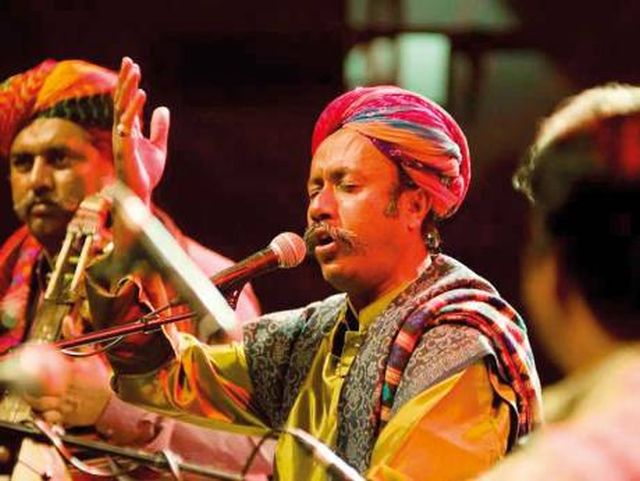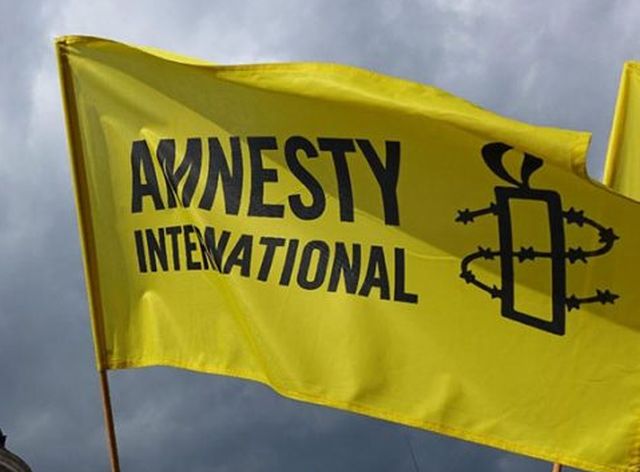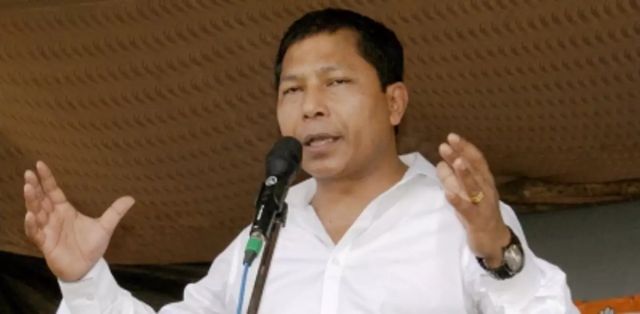
by Editor | May 25, 2021 | News, Politics

Sundhanshu Trivedi
New Delhi : The BJP on Monday accused the Congress of playing politics over the term Hindu, saying it symbolised its ignorance.
“Digvijaya Singh has used Hindu word in last couple of days for number of times. He has also said that there is no Hindu word,” Bharatiya Janata Party (BJP) leader Sundhanshu Trivedi told media at a press conference here.
Firing salvos at Congress President Rahul Gandhi, the BJP leader asked, “When there is no Hindu word, then how did Randeep Singh Surjewala call you a ‘janeudhari’ Hindu?”
“How many times your party will change its stand? On one hand in Kerala your party workers organise beef party and on other they convert into a ‘janeudhari’ Hindu,” he said.
“The manner their party leaders are speaking not only signifies their ignorance but also a deep rooted conspiracy,” he said.
Slamming Digvijaya Singh, Trivedi said, “He is such a learned leader that he can see ‘ji’ in Osama Bin Laden, he sees ‘Saheb’ in Hafiz Saeed and a peace loving person in Zakir Naik. This understanding of Singh and his party is exposed now.
“I want to give facts on Hindu to Singh. He should read page 72-73 of the Discovery of India written by Pandit Jawaharlal Nehru. Where he said that this world came into practice after 10th century and it was indicated towards by and large those who are living in this Indian subcontinent denoting their culture.”
“Rahul Gandhi should say whether he is comfortable with the definition of Hindu given by his great grandfather or with Singh?” he asked.
—IANS

by Editor | May 25, 2021 | Entrepreneurship, Events, Social Round-up
 By Archana Sharma,
By Archana Sharma,
Jaipur : They are Muslims, yet they sing Krishna “bhajans” (hymns) from Hindu lore. They have adopted a hybrid culture that is a mix of both religions and lifestyles. Many of their names too blend two religions, like Shankar Khan and Krishna Khan.
They are the Manganiyaars, who hail from western Rajasthan, where a thriving legacy of secular music has touched the hearts of music lovers not just in India but in many countries across the world where they have played. But they remain a struggling lot at home.
According to Manjoor Khan, a grandly-turbaned Manganiyaar folk singer, their art has flourished under the Rajputs. “Hindu Rajputs have kept our legacies live; they have protected us and kept our art living and thriving. For years, we have been singing for them,” Khan told IANS.
“Since centuries, our ancestors brought in a musical tradition, soaking the rhythmic waves emanating and emerging from Persia and Punjab. Over the years, our music earned fame as our melodies transcended the boundaries to win hearts of people across the world,” he added.
Western Rajasthan truly symbolises the cultural pluralism of India — what is called the Ganga-Jamuna culture — as many Muslims residing here, since their birth, have adopted the lifestyle and dress of Hindus because of centuries of cultural osmosis between the two religions.
Manganiyaars’ music blends the traditions of Hindustani and Sufi music. Many generations were connected to both Muslim and Hindu families to earn their livelihood where they sang and composed music for their “jajmaans” (patrons).
The Manganiyaars story is incomplete without mentioning Langas, their musical cousins. Langa means “song giver” and includes poets, singers, and musicians from Barmer. They too had expertise in Sufi singing and hence their patrons, unlike the Manganiyaars, were Muslims. They too performed at events such as births and weddings, exclusively for their patrons.
While the Hindu patrons of the Manganiyaars belonged to Bhati and Rathore clans of Rajputs, the Muslim patrons of the Langas were Sindhi Muslims.
The Manganiyar performers traditionally invoke the Hindu god Krishna and seek his blessings before beginning their recital while the Langas sing sufi songs.
Now, as their royal patrons exist no more, the Manganiyaars and Langas face tough times. Many of them still thrive on the mercy of their patrons’ places who are limited in numbers now.
While their community earns fame in the global arena, the Manganiyaars battle for their existence on home turf.
Bhungar Khan Manganiyaar, who now performs in countries like Australia, UK, Sweden, Norway, Germany and Russia, complains that this age-old legacy lacks the required support from the government in India and the new age generation is losing interest in this music.
There still exists a few artists, such as his stage partner Asin Langa, who teaches the rhythms of the music to kids at his home. “We need proper schools and trained teachers who can help build next-generation artists, but this seems like a distant dream,” Khan says.
Asin Langa also shares the pain. “I run a small school at my home where I teach 15 kids. In 2011, we received funds from Delhi Academy for a year which was like Rs 2,500 per kid and Rs 7,500 per teacher. That fund was received in my father’s name. However, we are still awaiting more funds. Now, as my father is no more, I have inherited the task of teaching kids, but, at times, I too feel the financial crunch,” Langa told IANS.
The duo believe that this legacy is going on due to efforts of people like them.
Manjoor Khan also runs a school with 40 kids in Barmer which receives financial support form Mumbai-based firm JSW.
“We have been receiving a helping hand from private firms, but government extends no aid to us,” he complained.
Earlier, their music was limited to the borders of western Rajasthan, but now even Bollywood seems quite influenced with their magic. Recently, two children of these communities made it to Bollywood chartbusters.
Sarvar Khan, 12, and Sartaaj Khan, 11, lent their voice to ‘Bapu sehat ke liye tu to hanikarak hai’ in Aamir Khan’s film “Dangal”. Earlier, in 2014, Swaroop Khan Manganiyar also won millions of hearts by singing ‘Tharki chokro’ in the film “PK”.
The credit for getting their music some national and international attention goes to Komal Kothari, who brought the traditional musicians before a larger, even global, audience. Previously, they preferred surviving on the patronage of wealthy merchants in caravan towns. As their patrons’ fortunes waned, so did theirs, before Kothari came along.
Also known as Komalda, he was the first to record the Manganiyars for a radio programme. Awarded Padma Shri and Padma Vibhushan for his exceptional work in the field of music, he was an Indian folklorist and ethno-musicologist from Jodhpur.
In 1960, he met Antar Khan, a Manganiyar, on the street, and soon he took him to his office. As he was preparing his vintage tape recorder to record him, he saw him disappear. When chased and caught, the poor man said that he feared his voice might be swallowed by a recording machine if he sang in front of it.
Kothari started making quick trips to Jaisalmer, in Manganiyar country, to talk to them on earning a new livelihood.
In 1962, the first recording of Langa music took place. In 1963, a Manganiyar troupe performed in Delhi, for the first time on stage. But Kothari wanted to showcase them to world.
In 1967, he traveled to Sweden with Langa troupe for their maiden performance outside India. Soon the Indian Council of Cultural Research (ICCR) got into the act. By the time India staged the popular Festivals of India all over the world in the mid-eighties, Manganiyars and Langas had become the darlings of international audiences.
Today, Rajasthan’s tourism industry is driven quite substantially by these charismatic performers. But they fear that without institutionalised support, their tradition may just die out.
(The weekly feature series is part of a positive-journalism project of IANS and the Frank Islam Foundation. Archana Sharma can be contacted at archana.s@ians.in)
—IANS

by Editor | May 25, 2021 | News, Politics
 New Delhi : Human rights NGO Amnesty International India on Thursday launched an interactive data website for keeping a track of and documenting hate crimes across the country.
New Delhi : Human rights NGO Amnesty International India on Thursday launched an interactive data website for keeping a track of and documenting hate crimes across the country.
“The first step to ensuring justice and ending impunity for hate crimes — where people are targeted because of their membership of a particular group — is to highlight their occurrence,” said Aakar Patel, Executive Director, Amnesty International India.
In 2017, an alarming number of alleged hate crimes — including assault, rape and murder — were reported against people from marginalized groups, especially Dalits and Muslims, the Amnesty International said as it launched the website named ‘Halt the Hate’.
“Our website aims to draw attention to some of these crimes by tracking and documenting them. Dalits have been attacked for merely sporting moustaches, and Muslims lynched for transporting cattle. Dalit women have been branded as witches, and raped and killed,” Patel said.
‘Halt the Hate’ documents alleged hate crimes against Dalits, Adivasis, members of racial or religious minority groups, transgender persons, and other marginalised people which are reported in mainstream English and Hindi media.
It documents 141 incidents of alleged hate crimes against Dalits and 44 against Muslims in 2017, including 69 incidents of killings where at least 146 people were killed. 35 incidents were found where women from these groups or transgender persons faced sexual violence.
The website documents alleged hate crimes from September 2015, when Mohammad Akhlaq was killed in Dadri, Uttar Pradesh, for allegedly possessing beef.
Cow-related violence and so-called ‘honour killings’ were among the common instances of the hate crimes.
Uttar Pradesh was the state with the most such incidents in 2016 and 2017. In 2016, 237 alleged hate crimes were recorded. Uttar Pradesh, Haryana, Tamil Nadu, Karnataka and Gujarat recorded the most incidents.
Patel said that the extent of hate crime in India is unknown because the law – barring some exceptions – does not recognize hate crimes as specific offences.
“The data on our website is just a snapshot of alleged hate crimes in India. Many incidents are not reported in the media. While criminal investigations have been initiated in some cases, too many have gone unpunished,” he said.
He said police needed to take steps to “unmask any potentially discriminatory motive” in a crime, and political leaders must be “more vocal” in denouncing such violence.
—IANS

by Editor | May 25, 2021 | World
 Washington : Faith groups protested on Friday against ongoing efforts by the Donald Trump administration to institute a ban on travel by residents of a number of Muslim-majority countries.
Washington : Faith groups protested on Friday against ongoing efforts by the Donald Trump administration to institute a ban on travel by residents of a number of Muslim-majority countries.
The demonstration in New York’s Washington Square Park took place a year after Trump’s first executive order setting out the ban, which has been blocked by the courts.
The US Supreme Court has agreed to decide the legality of the latest version of Trump’s ban, which affects residents from six countries instead of the original seven.
It pits an administration that considers the restrictions necessary for Americans’ security against challengers who claim it is illegally aimed at Muslims and stems from Trump’s campaign call for a “complete shutdown of Muslims” entering the US. The policy blocks entry into the US of most people from Chad, Iran, Libya, Somalia, Syria, and Yemen.
The justices plan to hear arguments in April and issue a final ruling by late June on a Trump policy that has repeatedly been blocked and struck down in the lower courts. On Friday protesters linked arms around a group of Muslim demonstrators who knelt to pray in Washington Square Park.
Rev Dr. Chloe Breyer, from the Interfaith Centre of New York, told Huffington Post: “It’s practically important and symbolically important to stand with people of different faith traditions. It’s what we should do as Americans.”
Trump’s first travel ban was issued almost a year ago, almost immediately after he took office, and was aimed at seven countries.
It triggered chaos and protests across the US as travelers were stopped from boarding international flights and detained at airports for hours. Trump tweaked the order after the US Court of Appeals for the 9th Circuit refused to reinstate the ban.
The next version, unveiled in March, dropped Iraq from the list of covered countries and made it clear the 90-day ban covering Iran, Libya, Somalia, Sudan, Syria, and Yemen did not apply to those travelers who already had valid visas. It also dropped language that would give priority to religious minorities. Critics said the changes did not erase the legal problems with the ban.
The same appeals courts that are evaluating the current policy agreed with the challengers. The 4th US Circuit Court of Appeals in Richmond said the ban “drips with religious intolerance, animus, and discrimination.” The San Francisco-based 9th US Circuit Court of Appeals ruled that Trump violated immigration law.
The Supreme Court allowed the ban to take partial effect but said those with a claim of a “bona fide” relationship with someone in the US could not be kept out of the country. Grandparents, cousins and other relatives were among those who could not be excluded.
But the high court said lower courts were wrong to apply the same limits to the new policy, at least while it is being appealed. The justices did not explain their brief order.
The third version is permanent, unlike the other two, and the administration said it is the product of a thorough review by several agencies of how other countries’ screen their own citizens and share information with the U.S.
Solicitor General Noel Francisco said in court papers that the policy is well within the President’s “broad authority to suspend or restrict the entry of aliens outside the United States when he deems it in the Nation’s interest.”
In response, the challengers said the policy violates the Constitution because it is biased against Muslims and also violates immigration law. The new version continues “the same unlawful policy” that was struck down by lower courts last year, lawyer Neal Katyal said in his brief on behalf of the challengers.
—SM/UNA-OIC

by Editor | May 25, 2021 | News, Politics

Mukul Sangma
Shillong : Slamming RSS chief Mohan Bhagwat’s remark that “anybody living in India is a Hindu”, Meghalaya Chief Minister Mukul Sangma on Tuesday said “India is a secular, democratic country and secularism is part of our constitution”.
“Their agenda is only to divide the Indian people on lines of religion and create communal tension. His statement (made in Tripura) is loud and clear that the motive is to that. We really need to ponder,” Sangma told IANS.
“It is totally unacceptable to say that anybody living in India is a Hindu. The whole world knows that India is a secular, democratic country and secularism is part of our constitution,” the veteran Congress leader said.
Sangma said that the nation must not allow such divisive forces to spread communalism as it is dangerous and pose a threat to India.
“Our secular ideals are under threat because of the ideology of Rashtriya Swayamsevak Sangh (RSS) and Bharatiya Janata Party (BJP). We cannot allow these divisive forces to further penetrate and it is dangerous for any nation to be dictated by such forces,” he said.
Charging the BJP-led National Democratic Alliance (NDA) government at the Centre of imposing the RSS agenda, Sangma said: “They (Modi government) have been driven by the RSS agenda and this government is implementing them.”
“Ever since they came to power, they have been implementing RSS ideology. It is time for people to be blunt and frank and express their concern,” the Congress leader said.
Sangma also said the Congress is firm and ready to defend the secular fabric of India.
“We should not lose focus. One after another, the hidden agenda of the BJP has come out. We should be able to properly articulate… and be ready to defend the future of this nation,” Sangma said.
—IANS





